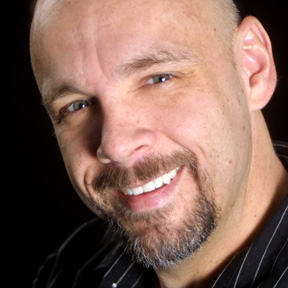The Critic's Corner
May 29 - June 4, 2017
In space, no one can hear you yawn
By David Laprad
You’re stranded on a space junker that has traveled far from Earth. Worse, the rest of the crew is dead, leaving you alone with something that should not exist. This can end only one of two ways – with you killed horribly, like the rest of your shipmates, or with the alien dead. The later seems unlikely, but as long as there’s breath in your lungs, you’ll fight to survive.
This is not a description of “Alien: Covenant,” the new prequel to the granddaddy of all monsters in space movies, “Alien.” Rather, it summarizes the latter and highlights one of the things that made that film special: it was man versus creature in a confined, claustrophobic space from which there was no escape. It didn’t matter how good Sigourney Weaver looked running around in her underwear; all your eyes could do was peer into the shadows, where you knew the beast was hiding.
It was fear boiled down to its essence, and it’s a brilliant film, fully deserving of its status as a classic.
Here’s a summary of “Alien: Covenant”:
The colonization ship Covenant is bound for a remote planet when its crew receives a radio transmission from a nearby world. Having suffered severe damage in a nutrino blast and facing several more years of space travel before they reach their destination, the captain decides to divert the ship to this unknown biosphere.
After a shuttle lands on the surface with an exploratory party, two of the space travelers inadvertently incubate themselves with alien spores and die gruesome deaths.
Meanwhile, the rest of the team encounters David, the synthetic that survived the events of “Prometheus” and made his way to this planet. David is presiding over a city peppered with the corpses of Engineers, the humanoids that gave birth to the human race.
As the crewmembers fight to survive the onslaught, the film explores the origin of the Alien species. Also, David and the others have quiet discussions about creation and the meaning of life. There’s a big action sequence near the end as the survivors try to get off the planet and then...
By the time “Alien: Covenant” got to “and then,” I had lost interest.
As more of a sequel to “Prometheus” than anything else, the film is riddled with many of the same problems. The script doesn’t always make sense, nor do the actions of the characters, who sometimes behave as if they have no sense at all.
Crewmembers emerge on an alien world with no protective gear, contamination protocols are forgotten at the drop of a hat, a pilot lowers the main spacecraft into a churning storm, even though the on-board computer has warned him that it will tear the craft apart, and so on.
More to the point is the series’ focus on exploring the backstory of how the aliens (which are some of the scariest movie creatures ever conceived and brought to life on the screen) came to be. While this storyline was semi-interesting in “Prometheus,” it saddles “Alien: Covenant” with the same kinds of discussions and plot threads. Once was enough. Here, it feels like the makers of these films are beating a dead horse.
Comedian Patton Oswalt has a terrific standup bit, available online, in which he rails against George Lucas for his obsession in the “Star Wars” prequels for explaining where everything came from. “I don’t need to know where Darth Vader came from,” he says. “I just like the helmet and the sword and the cape!”
I feel the same way about the “Alien” movies. I don’t need to know where the creatures come from, I just want xenomorphs, chests exploding and a giant queen with acidic blood.
Some of that stuff did make it into “Alien: Covenant,” and Ridley Scott, who helmed “Alien” in the 1970s, directs these scenes with the energy of a young filmmaker. Whatever its faults, “Alien: Covenant” looks terrific and carries the visual stamp of a master.
It also features a nice performance by Michael Fassbender as the psychotic and downright creepy David. I was more interested in the idea of an artificial intelligence losing its grip and going homicidal than I was the exploration of the concept of creation.
Strangely, though, “Alien: Covenant” didn’t scare me. Except for David, the character work is a little weak, and I simply didn’t care about anyone enough to be concerned about their fate. Besides, the scenes in which the aliens kill their prey slip by rather quickly, with little attention paid to the setup.
Perhaps Scott sensed that today’s audiences grow impatient with the set up and like to get right to the gory stuff – of which there is plenty.
“Alien: Covenant” leaves the door open for another sequel. I hope Scott and Fassbender will be back, as I was a fan of “Prometheus” and would like to see the prequels end on a high note. They just need a better script.
Two and a half stars out of four. Rated R for sci-fi violence, bloody images, language and nudity.
David Laprad is the assistant editor of the Hamilton County Herald and an award-winning columnist and photographer. Contact him at dlaprad@hamiltoncountyherald.com



